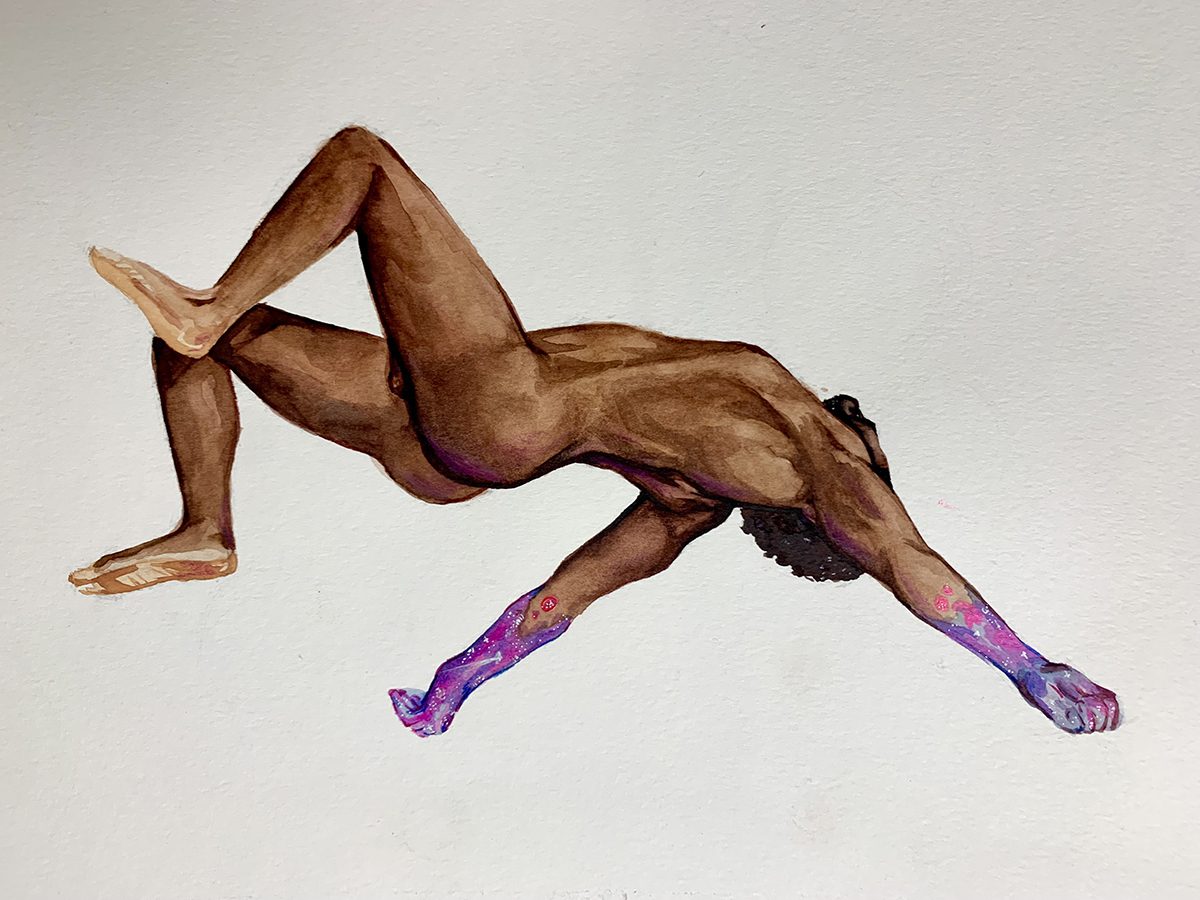The Black Paradise Project: Countering the Mental Health Impact of Racism with Black Joy

As Philadelphia comes to grips with the mental health impacts of racism, how can we create a productive path forward?
One unique initiative, the Porchlight Program of Mural Arts Philadelphia, put out a call for a psychologist and visual artist to develop a project to address mental health issues within the Black community. In response, counseling psychologist Kimberly Marie Ashby, PhD, and visual artist Yannick Lowery created the Black Paradise Project. The project aims to reduce the mental health burden of exposure to racism by providing opportunities for Black people to share their experiences and engage in joy.
“Anti-Blackness is a serious problem,” says Dr. Ashby, whose research focuses on racial trauma and its effects on mental health. “A lot of the literature demonstrates that engagement in joyful activities — specifically activities that allow you to feel connected to others and put you in a state of flow and mindfulness — allow people to create a life worth living, despite the fact that they are negatively impacted by racism.”
Providing Relief During a Time of Turmoil
With input from Philadelphia’s Department of Behavioral Health and Intellectual Disabilities Services, the Black Paradise Project organizes a variety of events, from dance and yoga to nature hikes and reflective writing workshops. People of all ages and communities throughout Philadelphia attend these activities. “Our events have the goal to help people find peace and relief, especially during a time of racial turmoil,” artist Lowery says.
Lowery is incorporating images from the organization’s events during the past year into a mural that will be installed in West Philadelphia. The mural’s composition will demonstrate the methods that members of the Black community have used to “find paradise.”
The adult Black community is 20 percent more likely to experience serious mental health problems such as major depressive disorder or generalized anxiety disorder, according to Thomas A. Vance, PhD, of Columbia University’s Department of Psychiatry. The increased incidence of psychological difficulties, Vance says, is related to the lack of access to culturally responsive mental health care and prejudice inherent in the daily environment, as well as issues related to economic insecurity and the associated experiences, such as violence and criminal injustice.
Racial trauma is a form of post-traumatic stress disorder, but it’s never-ending,” Dr. Ashby notes. In a culture that often demands a show of strength and resilience, “There’s never any room for softness or vulnerability,” she says. “True freedom is being able to be fully human.”







